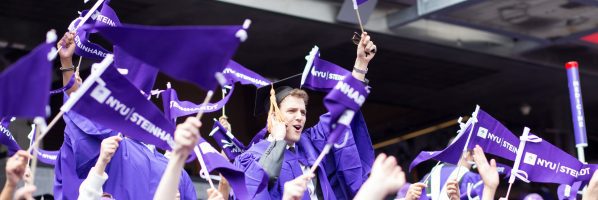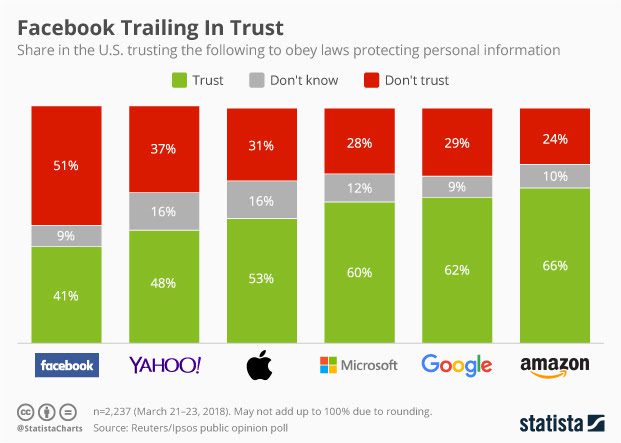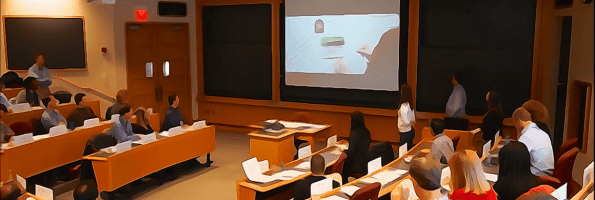MIT Talks to Costco CEO About Success, and More – Boston News

Let’s explore some of the most interesting stories that have emerged from Boston business schools this week, including a visit from the Costco CEO at MIT.
How Costco’s Obsession with Culture Drove Success – MIT Sloan Newsroom
Costco CEO James Sinegal, along with renowned Costco butcher Todd Miner, stopped by professor MIT Sloan Zeynep Ton’s “Management of Services: Concepts, Design, and Delivery” class earlier this month to discuss how Costco’s employee-focused culture was “critical to its success.”
In Ton’s 2014 book, “The Good Jobs Strategy,” she analyzed four “operational choices” that she believes Costco’s culture encapsulates—and are responsible for its status as a “wholesale giant.
- Offer less
- Standardize and empower
- Cross-train
- Operate with slack.
Sinegal explained that the key to Costco’s success is a culture that promotes “passion, integrity, ownership, and motivation in his employees and [ensures] that the customer can trust that they are always getting the best deal by shopping with Costco.”
He also highlighted the company’s well-known high-pay for its employees; among the best in the U.S. for retail workers.

“No one was going to be able to say we’re making money off the backs of our employees, because we were going to pay the highest wages in all of retail,” Costco CEO James Sinegal said.
Click here to get more insights from the Costco CEO.
The Evolution of Conflict Resolution – D’Amore-McKim Blog
Northeastern University D’Amore-McKim School of Business assistant professor Christoph Riedel recently published new research that offers insights into the social and biological evolution of how humans resolve conflict.
In “Conflict and Convention in Dynamic Networks,” Riedel researched how “dynamic networks allow individuals to resolve conflicts by managing their network connections rather than changing their strategy.”
His team applied computer simulations to common situations like when a single appetizer remains between a host and a guest. Riedel writes:
“Host-guest norms or ‘paradoxical behavior’ account for the vast majority of our simulated final state solutions—in other words, the host gives the guest the last appetizer. The opposite solution where the host takes the appetizer for himself, called ownership norms or ‘bourgeois behavior,’ is quite rare. This is especially interesting in the context of human biological behavior because in the animal kingdom, territoriality or ownership norms are ubiquitous.”
You can read more about Professor Riedel’s research here.
How Companies Can Use the Data They Collect to Further the Public Good – Harvard Business Review
HBS professors Edward L. Glaeser, Hyunjin Kim, and Michael Luca published a marketing piece in which they implored companies that collect data to recognize the possibility of “re-purposing their data for the public good,” which can allow companies to “do well by doing good.”
“[There is] broader potential for data from online platforms to improve our understanding of all of America. Just as Yelp can shed light on local economic changes, Zillow could inform our understanding of housing markets, LinkedIn could provide insight about labor markets, and Glassdoor could teach us about the quality of employment options in an area.”
You can check out the full article here.
Harvard Halts Round 3 MBA Admissions

Beginning this application season, Harvard Business School (HBS) will no longer feature a Round 3 for applicants to its MBA program, the school’s admissions director announced in a post to his blog this morning.
“After careful consideration, we have decided to focus our MBA application process on two rounds—with deadlines in September and January—and to focus our spring round on 2+2 applications,” Chad Losee, HBS managing director of admissions and financial aid wrote on his Direct from the Director blog. “To be considered for the Harvard Business School Class of 2021, you need to apply in either Round 1 (September 5, 2018) or Round 2 (January 4, 2019),” he added.
“We are trying to do what is in the best interest of the admits,” Losee explained to Clear Admit yesterday. The customary May release of Round 3 decisions has created a time crunch for incoming students in terms of securing housing, securing visas in the case of international students, and completing HBX Core, a set of online foundational courses all students are expected to finish prior to arriving on campus.
So, what do these changes mean for the next round of applicants? For starters, HBS will now admit its entire class in Rounds 1 and 2—with the exception of applicants to the 2+2 Program, the deferred admissions program for college students. The 2+2 deadline will still be in March.In addition to giving all admitted students adequate time to be fully prepared for fall enrollment, the decision to scrap Round 3 also reflects applicant behavior, Losee added. “One thing we have noticed over the last three years is that applicants are choosing this on their own,” he said. “Round 3 application numbers have been going down, and Round 2 application numbers have been going up.”
There are not plans to significantly change the timing of Rounds 1 and 2 this year, Losee said. “We might adjust the date a little bit for Round 2, just by a day or two,” he said. But the application deadlines for those two rounds will continue to be in September and January respectively.

Chad Losee, HBS managing director of MBA admissions and financial aid
As in the past, HBS will place some applicants on the waitlist as part of Rounds 1 and 2. As for whether the switch from three rounds to two will necessitate a change in terms of the overall size of the waitlist, time will tell, Losee said. “We never take for granted the people who are on the waitlist because we know they put a lot out there,” he said. “We try to keep the waitlist as small as possible and to let waitlisted applicants know as soon as possible—and that will continue to be true.”
Losee also noted that with the elimination of Round 3, some waitlist decisions could come earlier than they have in the past. “Until now we have needed to wait until Round 3 happens to make decisions with regard to our waitlist,” he said.
HBS Decision Comes as No Surprise
“Based on the multiple calls for Round 3 applicants from a number of leading schools this year, this decision by HBS comes as no surprise,” Clear Admit Co-Founder Graham Richmond said on hearing the news. “Today’s MBA applicants are increasingly applying early.” It’s a trend that has been evolving over the past 10 to 15 years, during which time Round 1 has slowly eclipsed Round 2 as the round of preference and the message from schools to “apply early” has gradually sunk in for applicants.
“It’s also likely a reflection of two new realities “ Richmond added. “First, the new challenges faced in the U.S. immigration policies, even for student visas. And second, the fact that more and more MBA students seek to spend the summer months in pre-MBA internships (as opposed to leisurely backpacking around the globe).”
These forces together with the messages from leading schools for “serious” candidates to apply early likely contributed to the elimination of Round 3 by HBS, Richmond concludes. “With that said, one can’t help but wonder if some Round 3 candidates—particularly the non-traditional sort who aren’t in the MBA pipeline from an early date—may fall ‘out of the process,’” he added.
Richmond added that he is not sure that every school will follow HBS’s lead and eliminate Round 3, however. “There are likely many applicants who won’t make the cut in Round 2 at the likes of Harvard, Stanford, and Wharton, who then may seek to submit late-round apps elsewhere,” he said. “As such, I don’t expect schools in the next tier (e.g. non-top-3) who are seeing declines in application volume to take this step.”
To read Losee’s complete post, click here.
This article has been edited and republished with permissions from our sister site, Clear Admit.
Harvard Business, Wharton NYU Stern Commencement Speakers Announced

As spring fully arrives, so do the business school announcements for commencement day. Clear Admit has already discussed the graduation speakers you can expect at Michigan Ross and Stanford GSB. Now, Harvard Business School, Wharton, and NYU Stern have also announced their graduation speakers.

Harvard Commencement
At Harvard Business School, Carla Harris, vice chairman of Morgan Stanley, will deliver the MBA Class Day address. Harris (MBA ’87) has worked for three decades at Morgan Stanley, holding influential positions in mergers and acquisitions as well as equity capital markets. She’s also active at the university as a member of the Harvard University Board of Overseers. In addition, Harris is the focus of an HBS case study about emerging female and minority asset managers.
- Date: Wednesday, May 23, 2018
- Location: Baker Lawn
Wharton Graduation
 Hamdi Ulukaya, the founder, chairman, and CEO of Chobani, LCC, will speak at the Wharton MBA graduation ceremony. Raised in eastern Turkey, Ulukaya launched Chobani in 2007 with the goal of making good food more accessible. Within five years, Chobani had become the number one best-selling Greek yogurt brand in the United States. Beyond his business success, Ulukaya has also had a positive impact on communities through donations to charities, innovative profit-sharing, and paid parental leave.
Hamdi Ulukaya, the founder, chairman, and CEO of Chobani, LCC, will speak at the Wharton MBA graduation ceremony. Raised in eastern Turkey, Ulukaya launched Chobani in 2007 with the goal of making good food more accessible. Within five years, Chobani had become the number one best-selling Greek yogurt brand in the United States. Beyond his business success, Ulukaya has also had a positive impact on communities through donations to charities, innovative profit-sharing, and paid parental leave.
- Date: Sunday, May 13, 2018
- Location: The Palestra
NYU Stern Commencement
 At NYU Stern, graduates can expect to hear from keynote speaker Sallie Krawcheck, the CEO and co-founder of Ellevest, a newly launched digital investment platform for women. Beyond her entrepreneurial work at Ellevest, Krawcheck is the chair of Ellevate Network, a global professional women’s network, and Pax Ellevate Global Women’s Index Fund, which invests in companies that advance women. She’s also a best-selling author and previously served as CEO of Merrill Lynch Wealth Management, Smith Barney, and Sanford Bernstein.
At NYU Stern, graduates can expect to hear from keynote speaker Sallie Krawcheck, the CEO and co-founder of Ellevest, a newly launched digital investment platform for women. Beyond her entrepreneurial work at Ellevest, Krawcheck is the chair of Ellevate Network, a global professional women’s network, and Pax Ellevate Global Women’s Index Fund, which invests in companies that advance women. She’s also a best-selling author and previously served as CEO of Merrill Lynch Wealth Management, Smith Barney, and Sanford Bernstein.
- Date: Friday, May 18, 2018
- Location: Theater at Madison Square Garden
This article has been edited and republished with permissions from our sister site, Clear Admit.
What They’re Saying: The Facebook Fallout

It seems puzzling to say a company that is worth nearly half a trillion dollars is venturing somewhere near zero degrees Kelvin, but if you were only reading headlines this week you’d get the sense that Facebook isn’t looking so hot.
Since the break of the Cambridge Analytica scandal, the tech giant lost an estimated $100 billion USD in value, and its beleaguered founder Mark Zuckerberg lost an estimated $14 billion of his own worth. Fortunately for him, according to CNN, he’s still worth over $60 billion so he can easily afford more mayonnaise and butter sandwiches.
But the fallout is more than monetary. Trust in the social media company is at a critical low point, according to Statista data.

Janina Conboye at the Financial Times recently asked how the company may go about repairing its own image in “The MBA view: can Facebook fix its reputation?,” speaking with numerous business school faculty members, including London Business School‘s Jill Schlechtweg, who plainly says, “It is worth wondering whether Facebook can regain credibility at all. Arguably Mark Zuckerberg has evaded responsibility for the social costs of social media addiction, the proliferation of fake news, and now leaks of personal data for political ends.”
Check out how other business schools and industry experts are reacting the ongoing Facebook story below.
What @facebook knows about you apparently includes data about phone calls and messages. The revelation could make Facebook’s huge data scandal hurt more than ever. https://t.co/jActrbEB5i
— MIT Tech Review (@techreview) March 27, 2018
PSA: “Harvard Business School Prof. Shoshana Zuboff calls it “surveillance capitalism.” And as creepy as Facebook is turning out to be, the entire industry is far creepier. It has existed in secret far too long…” https://t.co/vSPlAyWnzu
— Mitchell Schneider (@Mitski) March 27, 2018
What Cambridge Analytica is accused of doing, Facebook and Silicon Valley giants like Google do every day, indeed, every minute we’re logged on. – https://t.co/8O9730vddo
— Mark Schaefer (@markwschaefer) March 29, 2018
In the wake of the Cambridge Analytica scandal, Apple is making their position clear on privacy. https://t.co/OLIl5ihtby
— FOX MBA & MS (@FoxMBA) March 28, 2018
.@profgalloway weighs in on #Facebook‘s handling of the Cambridge Analytica scandal via @barronsonline https://t.co/6zWqfAa3nk
— NYU Stern (@NYUStern) March 28, 2018
Starting a Business Straight Out of School? How HBS Supports Student Entrepreneurship

This coming weekend, Harvard Business School (HBS) will host an annual Entrepreneurship Conference sponsored by its own homegrown Entrepreneurship Club. The conference brings together hundreds of participants including “founders, joiners, and venture capitalists,” all of whom hope to connect through a smorgasbord of lectures, panels, chats, and networking sessions.
This year’s conference, scheduled for Saturday, March 31, is expected to draw more than 500 participants, including many top professors and professionals holding court on a variety of topics. Three keynote lectures will be given by CEOs and founders from Catalant Technologies, Strava, and edX. Strava’s Michael Horvath, who is also a professor of entrepreneurship at Dartmouth’s Tuck School of Business, will share his experiences having held several high-level roles at multiple startups.

Tuck Professor and Strava Co-Founder Michael Horvath will give one of the Entrepreneurship Conference’s keynote addresses.
In addition to the keynote lectures, the conference is also stacked with nine different panels. Some will include general discussions on topics such as starting a business during your MBA program and financing your startup. Others are more specific, covering some of the hottest fields in entrepreneurship right now. Examples of these include “Blockchain: The Next Transformative Technology?” and “AI/ML: Artificial Intelligence in Diverse Contexts.” Finally, attendees will also get to take part in a venture capitalist meet-and-greet and a networking lunch and cocktail hour.
HBS is extremely supportive of entrepreneurship, according to Jim Aisner, the school’s director of media and public relations. He spoke at length about the myriad ways in which HBS is a fantastic place for both seasoned and budding entrepreneurs, underscoring the range of support Harvard’s large entrepreneurial community offers to those looking to start their own businesses.
“Entrepreneurship is a major component of life at HBS, with some 35 faculty members doing research, course development, mentoring/advising, and teaching in this area,” Aisner told Clear Admit.
Harvard’s program requires all first-year MBA students to take an entrepreneurship course, and there are also a large number of entrepreneurial-focused electives on offer in the second-year Elective Curriculum. In addition, the school boasts multiple conferences and events that reach programs outside the business school. “There is a whole ecosystem [at Harvard] promoting and nurturing entrepreneurship,” Aisner notes.
Significant Programming Supports HBS Student Entrepreneurs
HBS is also home to the Arthur Rock Center Accelerator, which helps selected teams develop their ventures over the course of the year. In addition, the Rock Accelerator offers summer fellowships to support students from the entire student body who seek to develop entrepreneurial ventures during the summer and hosts a semiannual conference that brings 100 alumni back to campus each year.
Rock Venture Partners is a program that lets small groups of students learn more about investing in startups by supporting Rock Accelerator teams as they go through pitching and starting their ventures. Then there is the Harvard Innovation Lab, or i-lab, a resource available to current students at any Harvard school interested in exploring innovation and entrepreneurship at any stage. “The Innovation Lab creates a hotbed of cross fertilization for teams from across the university,” says Aisner.
Given this supportive environment, it won’t come as a shock that many HBS students decide to start their own businesses rather than pursue a more traditional career path in their post-MBA life. Out of more than 900 students, eight percent of graduates from the Class of 2017 chose to start their own businesses upon graduation, up from six percent in the Class of 2016. Although this growth is indicative of a national trend toward more and more recent MBA grads founding startups, HBS outperforms many top schools in this regard. By comparison, at Chicago Booth just 3.2 percent of 2017 MBA grads went immediately into running their own startups. Meanwhile, at the University of Pennsylvania’s Wharton School, just 2.3 percent of the most recent graduating class founded businesses.
As another indicator of its commitment to fostering entrepreneurship, HBS will host its annual New Venture Competition on April 18th, which bestows more than $300,000 in prize money to outstanding new ventures. Contestants may apply in either the business track, with ventures that drive substantial market value, or the social enterprise track, with ventures that drive social change. This recent Clear Admit article noted that the social enterprise track received 69 entries this year, more than ever before.
Nationwide, more and more students have begun to pursue startups at all stages of their MBA careers. From this weekend’s student-led Entrepreneurship Conference to the wide range of related centers, faculty, and other support, HBS’s investment in nurturing its entrepreneurial students is clear.
This article has been edited and republished with permissions from our sister site, Clear Admit.
New Harvard Venture Competition Receives Record Entries to Social Enterprise Track

The annual Harvard Business School (HBS) New Venture Competition—and its more than $300,000 in cash prizes—always attracts plenty of interest. Sponsored by the Rock Center for Entrepreneurship and Social Enterprise Initiative, it offers Harvard Business School students the opportunity to enter ventures in one of two tracks:
- Business Track: For ventures that drives substantial market value and economic returns.
- Social Enterprise Track: For ventures that drive social change through nonprofit, for-profit, and hybrid models.
This year, there were a record 69 entries for the Harvard Venture Competition Social Enterprise Track—20 more than last year!
From those 69 entries, a team of expert social enterprise leaders from across Harvard was able to choose 16 semifinalists. These semifinalists have already passed an extensive review and deliberation process and will now present their ideas in front of a panel of expert judges that include philanthropists, impact investors, and social entrepreneurs.
The final presentation will occur on April 18, with each semifinalist team vying for the $75,000 grand prize and $25,000 runner-up prize. As enticing as those cash prizes are to students with ventures they’re looking to launch, all participants enjoy the many following benefits:
- Access to a series of workshops and office hours covering topics such as “how to develop a social enterprise plan” and “identifying the market for social ventures;”
- The catalyst to develop a business plan and executive summary, which will be required for the final presentation;
- Feedback from expert judges out of leading social organizations such as ACCION International, Echoing Green, and Invested Development, and
- Reimbursement of up to $1,000 in startup expenses.
Without further ado, here are the 2018 Social Enterprise Track semifinalists:
- C3 Solutions: A carbon capture company
- CareZoom: An online platform for healthcare delivery
- Covalent Networks: A software platform for workforce development programs
- Dignify: A digital network matching refugees and locals
- EatWell: A healthy eating company for low-income families
- Fontes Irrigation: On-demand irrigation for farmers in Mozambique
- Hoom: A smart, sustainable $10,000 home
- ImmerLearn: Use machine learning and novel data to maximize the effectiveness of social and public programs.
- Joro: An app for tracking CO2 emissions
- Neptune: A better grease trap
- OnTrack Births: Providing access to quality maternal care in India
- SHLD: A Snapchat program that provides teens with wellness tips and suicide prevention
- STEMgem: An IoT device toolkit
- Trey: Empowering college athletes for future success
- Umbulizer: A low-cost, portable ventilator for patients
- UPON: Eliminate labor underutilization and increase women’s access to the workforce.
To learn more about each of the semifinalists, read the HBS Impact Insights Blog post.
